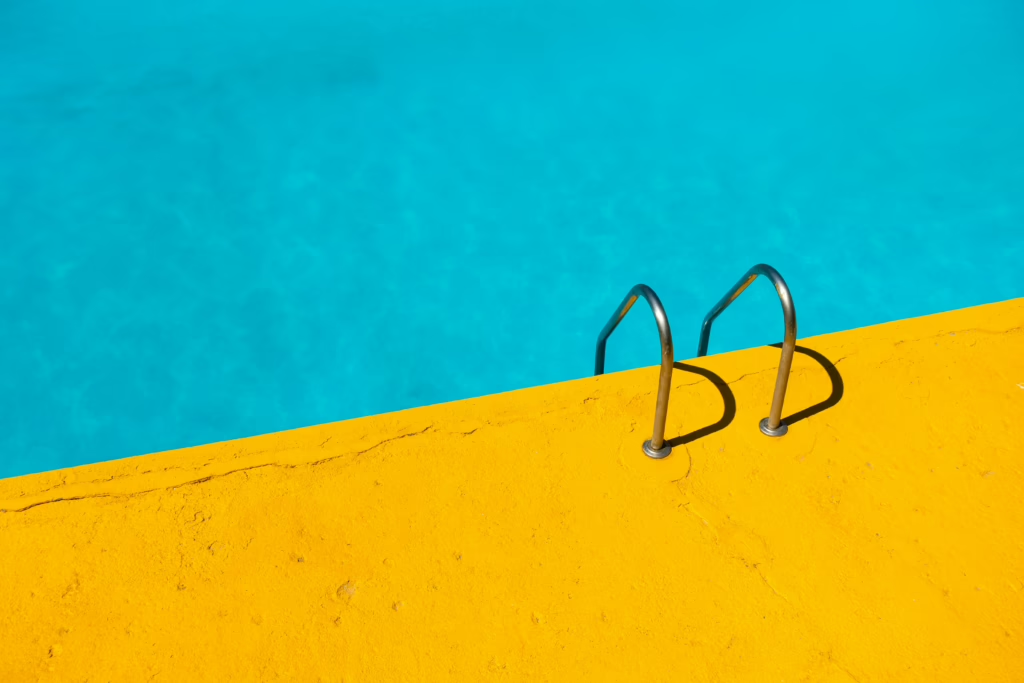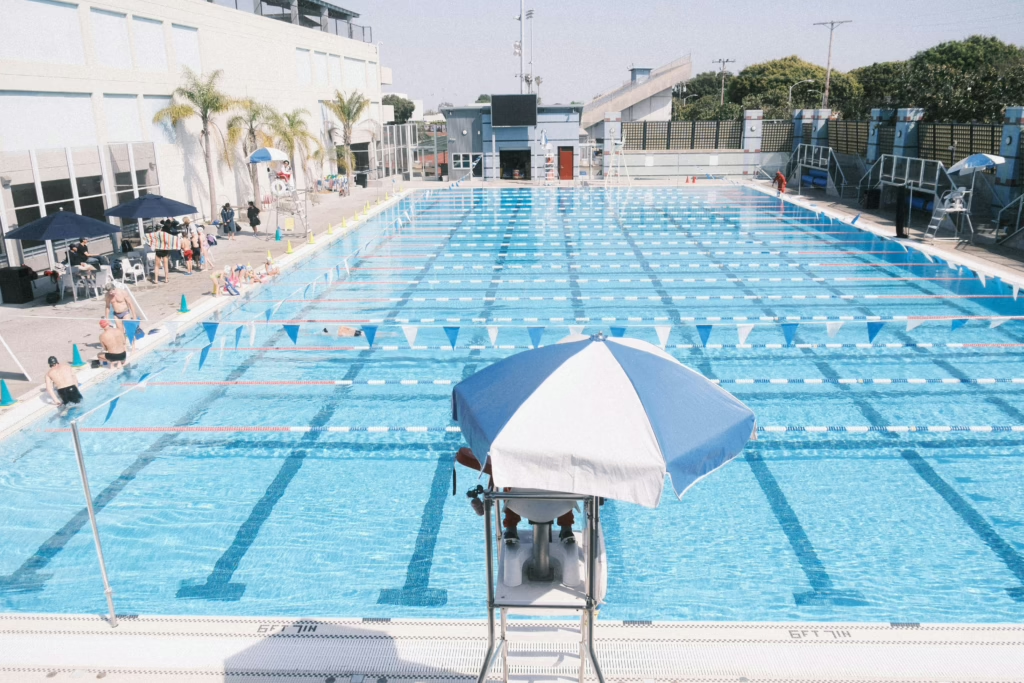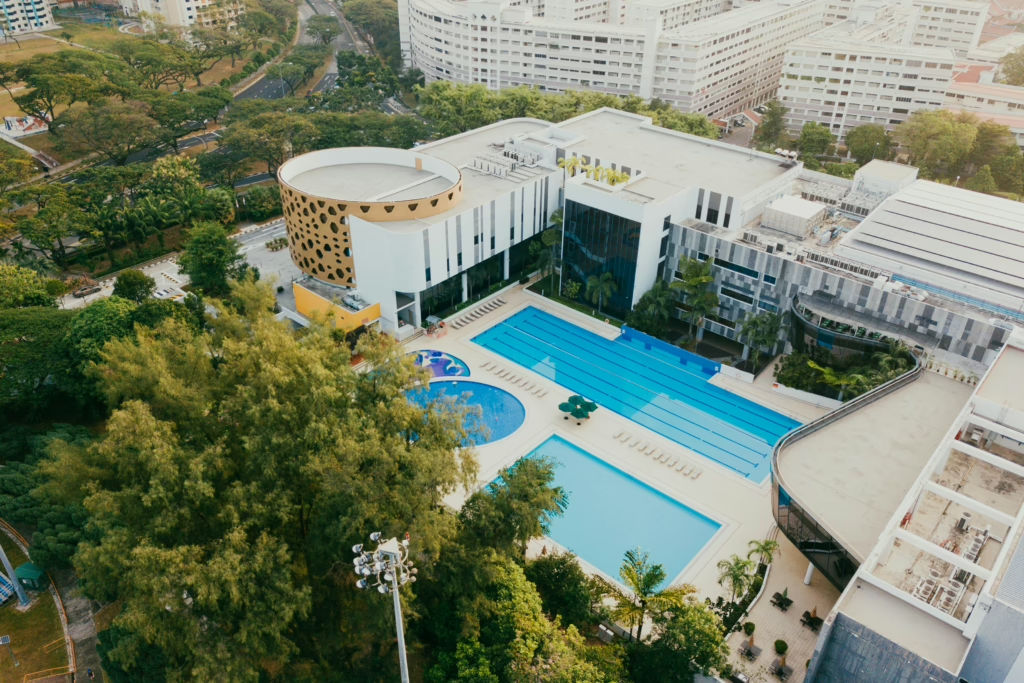Have you ever dipped your toes into what you thought was a pristine pool, only to be greeted by cloudy water or floating debris? We’ve all been there. That sparkling blue water we love doesn’t happen by magic—it’s the result of a well-maintained filtration system working behind the scenes. Your pool filter isn’t just another component; it’s the heart of your pool’s circulation system and the guardian of water clarity.
If you’re searching for “pool filter cleaning near me,” you’re already on the right track to maintaining a healthy swimming environment. This guide will walk you through why clean filters matter, when to schedule cleanings, and how to choose between DIY maintenance and professional services. Whether you’re new to pool ownership or looking to improve your current maintenance routine, understanding how filters impact your pool’s health will save you time, money, and frustration.
Let’s dive into the world of pool filtration and discover why this often-overlooked maintenance task deserves your attention. Trust me—your pool (and your swimmers) will thank you.
The Foundation: How Pool Filters Support Your Swimming Experience
The Circulation Cycle
Your pool’s filtration system works tirelessly to keep water moving and clean. When water circulates properly through your filter, it prevents stagnation and ensures chemicals distribute evenly throughout your pool. I like to think of your filter as the kidneys of your pool—constantly filtering out impurities while keeping the good stuff flowing. Without this continuous circulation, your pool would quickly become a breeding ground for algae and bacteria.
Types of Debris Removal
From visible leaves and insects to microscopic contaminants, your filter handles an impressive range of unwanted materials. Different filter types (sand, cartridge, or DE) capture different-sized particles, but they all serve the same essential purpose: keeping those contaminants from returning to your swimming water. A good filter doesn’t just remove what you can see—it’s working on a microscopic level to keep your water pristine.
Supporting Chemical Effectiveness
Have you ever added chemicals to your pool only to find they don’t seem to work as expected? A clean filter helps those chemicals do their job properly. When water flows freely through a clean filter, chlorine and other treatment chemicals can distribute evenly and work effectively throughout the pool. Think of your filter as a teammate to your chemicals—they work best when they work together.
Performance Benefits: How Clean Filters Optimize Circulation
Enhanced Water Flow
A clean filter allows water to move through your system with minimal restriction. This free-flowing circulation ensures even distribution of heat and chemicals, preventing dead spots where algae can take hold. You’ll notice the difference immediately in how your pool water moves and feels—it’s like the difference between a sluggish stream and a vibrant river.
Energy Efficiency Gains
Did you know a clogged filter can increase your energy bills? When your filter is dirty, your pump has to work harder—much harder—to push water through the system. This extra strain not only uses more electricity but can shorten the lifespan of your expensive pump equipment. I’ve seen homeowners save up to 30% on their pool energy costs simply by maintaining clean filters. That’s money back in your pocket!
Equipment Protection
Your pool pump represents a significant investment. By maintaining clean filters, you’re actually protecting this investment from premature failure. Professional pool technicians who provide “pool filter cleaning near me” services can ensure your entire system works harmoniously, preventing costly repairs down the road. Think of regular filter cleaning as an insurance policy for your pool equipment.
Water Quality Improvements: The Visual and Health Benefits
Crystal Clear Appearance
There’s nothing quite like the visual appeal of a perfectly clear pool. Clean filters capture the tiny particles that can make water appear dull or cloudy. The result? That magazine-worthy, inviting blue water that makes your pool the centerpiece of your outdoor space. When friends and family compliment your beautiful pool, you can thank your clean filter!
Algae and Bacteria Prevention
Proper filtration is your first line of defense against unwanted biological growth. When water moves constantly through a clean filter, algae spores and bacteria have less opportunity to establish themselves in your pool. This means fewer green spots, less scrubbing, and reduced chemical treatments. I’ve seen pools transform from frequent algae battles to virtually maintenance-free simply by improving filtration.
Chemical Balance Optimization
Every pool owner knows the challenge of maintaining proper chemical levels. Clean filters make this balancing act easier by removing contaminants that would otherwise interact with and deplete your chemicals. The result is more stable readings and less time spent adjusting your water chemistry. Many of my clients report using up to 25% less chemicals after establishing a regular filter cleaning routine.
Maintenance Matters: Why Regular Filter Cleaning Can’t Be Ignored
Consistent Water Quality
Regular filter maintenance ensures your pool stays consistently clean—not just clean occasionally. This consistency is particularly important during peak swimming seasons when your pool sees increased use and exposure to sunscreen, body oils, and other contaminants. A good maintenance schedule means your pool is always ready for that impromptu pool party or that peaceful evening swim.
Extended Equipment Lifespan
Think of filter cleaning as preventive medicine for your pool system. Regular maintenance prevents the excessive wear and strain that shortens equipment life. Many pool owners find that professional “pool filter cleaning near me” services pay for themselves through extended equipment lifespans. A pump that lasts 10-12 years instead of 5-7 years represents significant savings.
Cost-Saving Benefits
Beyond energy savings, clean filters reduce your overall maintenance costs. You’ll use fewer chemicals, need fewer shock treatments, and face fewer emergency repairs when your filtration system operates at peak efficiency. One of my clients calculated that their professional filter cleaning service saved them nearly $600 annually in reduced chemical and energy costs.
Professional vs. DIY: Making the Right Choice for Your Pool
DIY Filter Cleaning Approach
Some pool owners prefer the hands-on approach of cleaning their own filters. Cartridge filters can indeed be rinsed with a garden hose, making them relatively accessible for DIY maintenance. However, achieving a truly deep clean often requires specialized knowledge and equipment. If you’re the DIY type, just remember that surface rinsing is only part of the equation.
Professional Service Advantages
Professional pool technicians bring expertise and efficiency to filter cleaning. They can perform thorough cleaning that goes beyond surface rinsing, including chemical soaking for cartridge filters or proper backwashing techniques for sand and DE filters. They’ll also inspect your entire system for potential issues you might miss. I’ve seen countless situations where a professional’s trained eye caught small problems before they became expensive disasters.
Finding the Right Balance
Many pool owners find the best approach combines regular DIY maintenance with periodic professional deep cleaning. This hybrid approach keeps your system running smoothly while ensuring thorough maintenance when it matters most. Perhaps you handle the basic monthly rinse while scheduling professional deep cleans quarterly—find what works for your schedule and budget.
Practical Tips: Maintaining Filter Performance Between Cleanings
Regular Debris Removal
Take a proactive approach by skimming leaves and visible debris from your pool before they enter the filtration system. This simple habit reduces the workload on your filter and extends the time between cleanings. Just 5 minutes of skimming each day can make a remarkable difference in your filter’s performance.
Pressure Gauge Monitoring
Your filter’s pressure gauge is telling you important information—are you listening? A reading that’s 8-10 PSI above the normal clean reading indicates it’s time for cleaning. Learning to read this gauge helps you clean at the optimal time, not just on a calendar schedule. Make checking your pressure gauge part of your regular pool routine.
Scheduled Maintenance Planning
Even with regular monitoring, plan for routine professional servicing. Most pools benefit from professional filter cleaning at least twice yearly, with potentially more frequent service in high-use pools or those surrounded by trees and landscaping. Mark these dates on your calendar just as you would other important home maintenance tasks.
Frequently Asked Questions:
1. How often should I clean my pool filter?
Most residential pools require filter cleaning every 3-6 months, depending on usage, environment, and filter type. Watch your pressure gauge—an increase of 8-10 PSI above normal indicates it’s time for cleaning. Summer months typically require more frequent cleaning than winter months.
2. What are the warning signs that my filter needs immediate cleaning?
Look for cloudy water, reduced return jet pressure, higher energy bills, or a pump that seems to be running longer than usual. Your pressure gauge reading should be your first indicator that something’s amiss. If you notice your pool doesn’t seem to be clearing up after adding chemicals, your filter might be the culprit.
3. Can dirty filters damage other pool equipment?
Absolutely. When your filter is clogged, it forces your pump to work harder, potentially leading to overheating, seal damage, and premature failure of expensive components. I’ve seen pumps burn out in as little as two seasons due to chronically dirty filters.
4. Is professional filter cleaning worth the cost?
For most pool owners, yes. Professional cleaning ensures thorough removal of contaminants that DIY methods might miss, extends equipment life, and often includes system inspections that can catch small issues before they become expensive problems. When you consider the potential savings in equipment replacement and chemical costs, professional cleaning often pays for itself.
5. What’s the difference between backwashing and deep cleaning a filter?
Backwashing (for sand and DE filters) reverses water flow to flush out trapped debris but doesn’t deep clean the filter media. Professional deep cleaning addresses oils, minerals, and embedded contaminants that backwashing can’t remove. Think of backwashing as regular brushing and professional cleaning as a dental deep clean—both are important for different reasons.
Final Thoughts
Clean filters are the unsung heroes of pool maintenance, quietly ensuring your swimming experience remains enjoyable while protecting your investment in pool equipment. Regular cleaning—whether DIY or professional—prevents the cascade of problems that dirty filters can cause, from cloudy water to equipment failure.
If you’re looking for dependable “pool filter cleaning near me,” PoolLogic offers comprehensive services tailored to your specific needs. Contact us today to schedule your next cleaning and enjoy a pristine pool all year round. With our 5-minute setup process, getting started couldn’t be easier.
Ready for better pool care? Take the first step toward cleaner, clearer water by prioritizing your filtration system—your pool (and your wallet) will thank you.



